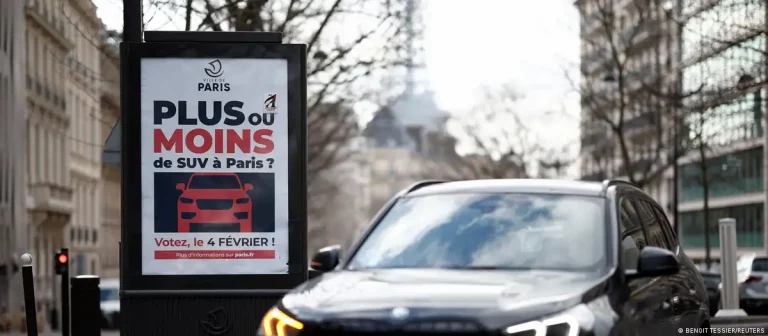Two Experientia presentations in Busan, South Korea
As part of its first Design Week, the Center organised two international conferences: one – the Busan International Design Congress – had “Digital Energy” as its main theme and was strongly inspired by the user experience discourse; the other one dealt more specifically with marine design (Busan hosts the world’s fifth largest port and is in the process of turning its seaside into an important lifestyle asset).
Discussions were moderated – in both cases – by Ken Nah, professor in Design Management at Hongik University‘s International Design School for Advanced Studies (IDAS), and Director-General of Seoul World Design Capital 2010.
Mark Vanderbeeken, a senior partner of Experientia and editor of its Putting People First blog, was a speaker at both conferences: a keynote speaker at the first one, and a special speaker at the other.
Both of Mark’s presentations sought to connect with the Korean context and aspirations, so you might find some of its content very Korea-specific. But they are also, we think, meaningful for a wider international audience. When viewing the presentations on SlideShare we encourage the readers to select the Speaker Notes tab next to Comments, so you can read the text that was used to accompany the slides.
Digital design for behavioral change – Engaging people in reducing energy consumption
Climate change is one of the greatest challenges facing the human race in our era. We cannot continue in our reliance on depleting and non-renewable fossil fuels to power our world. We all know we need to change our behaviours – yet very little seems to happen. Why? Research shows that people are confused about what actions will really have the most impact on reducing energy, and do not have all the necessary information, right tools, and appropriate feedback on the impact of their actions. To be effective, campaigns and technologies to encourage behavioural change must make an impact on our physical environment, and our personal, social and cultural beliefs and norms. But do they? Smart meters, one of the tools hailed as the digital answer to energy reduction, have come under a barrage of criticism for being badly designed, counter-intuitive, and failing to offer enough encouragement, feedback and motivation for real change.
Experientia is currently part of an international team, building a low-to-no carbon emissions block in Helsinki. We are working with the people of Helsinki to design people-centred smart metres, to envisage sustainable services, and to build a realistic, effective framework for behavioural change. Sustainability requires a different lifestyle, but we believe that it is not a lifestyle that requires sacrifices for people – instead it can actually increase human satisfaction, sense of community and neighbourly collaboration and trust. We believe that changing behaviours to achieve a more sustainable future, also implies changing our world to a more enjoyable quality of life.
User experience in yachting design
The yachting market is, on the whole, still product oriented, rather than customer oriented. The focus of the way the industry presents itself centres on the product, rather than on the experience. As the yachting industry has seen its double-digit growth of the past decades diminish in the wake of the economic crisis, it now needs to look inwards, to renew and refresh its own design approach and methodology, and outward, to explore new markets, and to concentrate on how to enter them successfully. This requires a people-centred approach, which considers yachts not as mere physical products, but as facilitators of an experience.
User-experience design is built upon an understanding of and dialogue with the potential consumer, in order to create a more “user-centred†product and thereby drastically enhance the ‘total’ experience of the brand. Yachts are luxury products; their major selling point goes beyond their form or function, but also covers the use of the boat, its rarity and what it expresses about the owner. This fits well with the idea of an experience-driven product: experience is invisible, permeating and memorable. It does not contrast with the production volume. Its very uniqueness and individuality means that it can be offered to many, without reducing the perception of rarity.
Many of the yachting industry’s customers now come from emerging markets, and from a younger demographic base. These new customers often bring with them totally new paradigms, needs and desires. Creating yachts for these markets requires not just product design, graphic design, computer science and engineering skills, but also ethnography, cognitive psychology and sociology, as well as an understanding of interaction design, interface design and service design. Tools and techniques that offer insights into these consumers and how they differ from traditional yacht markets will be vital if the yacht industry is going to go beyond the self-referential designs created for the Western luxury market, and new design disciplines will allow the industry to create experiences that endure across individual, social and cultural contexts. To do so, it will have to address considerations such as the democratization of luxury, the desire for bespoke goods, two-way engagement with consumers, differentiation through service, responsible and sustainable luxury and the integration of web and other developing technologies.
Experientia wishes to express its sincere gratitude to the President and the staff of the Busan Design Center, who have been exceptional, generous and warm hosts and have succeeded in launching a meticulously well organised Design Week, to Prof. Ken Nah for the great hospitality and commitment shown during Mark’s two-day visit to Seoul, and to the staff and students of Inje University where Mark presented some of Experientia’s project and methodology.
Check also Core77 where Mark posted a broader reflection on Korean design.
Finally, the Korean audience might be interested in this short two minute Experientia presentation video with Korean language subtitles.



